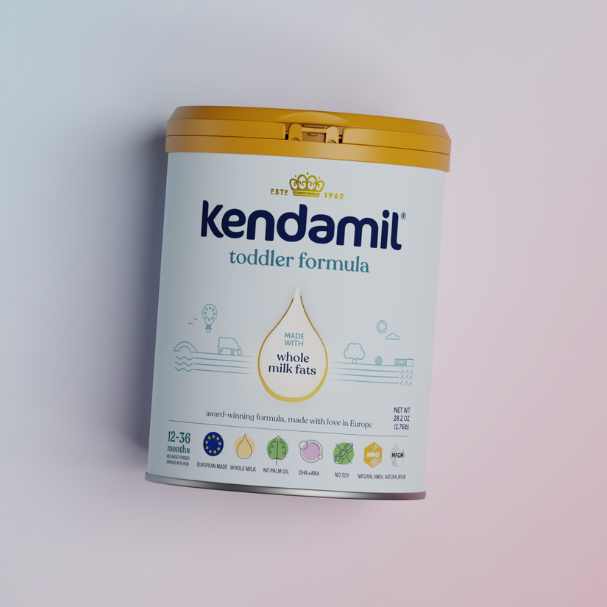Becoming a mom is an exciting, life-changing experience, but it's not without its challenges. Already you have to adjust to a new routine and the demands of caring for a newborn, plus there are many physical and emotional changes you might experience after giving birth. But don’t worry we have you covered, here’s everything you need to know about post-birth, from recovery to caring for your new bundle of joy.
Postpartum Recovery
After giving birth, your body needs time to heal and recover. If you had a vaginal birth, you may experience soreness, swelling, and discomfort in the perineum area. To ease these symptoms, your doctor may recommend using a stool softener to make bowel movements easier, sitting in a warm water bath, doing a sitz bath over the toilet, and using a cold compress to reduce swelling. You can also do gentle pelvic floor exercises to help strengthen your muscles and promote healing, just get your doctor’s approval first since every recovery is different.
If you had a cesarean section, it's important to follow your doctor’s instructions for caring for your cesarean scar. You will need to avoid heavy lifting and strenuous activity for several weeks after surgery. Your doctor may also recommend pain medication to manage any discomfort.
You can expect to bleed for a few weeks after birth, this is totally normal. It will gradually turn a brownish color and then stop. For those bottle feeding baby, you can expect your periods to return 5-6 weeks after birth. For those who are exclusively breastfeeding you can expect your period to return once you start to decrease breastfeeding. But as you discovered during pregnancy every person has a different experience.
Going to the toilet post-birth is a scary thought for new moms, especially if you had to have stitches due to a tear. Try to eat a diet rich in fruits, veggies, and healthy fats so you don’t let yourself get constipated. Peeing can really sting in those early days, so try to drink lots of water to dilute your urine so it stings less. You may find using a jug of lukewarm water or a perineal spray bottle vs toilet paper a more gentle way to clean yourself.
Breastfeeding Tips
Breastfeeding is the ideal way to nourish your newborn and provides numerous health benefits for both of you, but it doesn’t come naturally to mom or baby at first and not every circumstance allows mom to breastfeed. All babies need to learn how to latch on and for first-time moms it can be tricky to know how to get baby to latch too. Often in those first few weeks you may suffer with sore, bleeding and cracked nipples. Make sure to have nipple shields and nipple balm to hand as well as cloths to make cold and warm compresses. While you’re in the hospital post-birth make the most of the nurse’s knowledge on getting baby to latch and breastfeeding positions. Many parents also get the advice of an oral tie professional to evaluate their baby for an oral tie that might be affecting latch. If you do need more support once you and baby are home you can find local support groups near you on the La Leche League website, you can also head to the Breastfeeding USA website for more information and helpline number.
If you experience any difficulties with breastfeeding, don't hesitate to seek help. Your doctor, a lactation consultant, or a breastfeeding support group can provide advice and support to help you overcome any challenges.
Bonding with Your Baby
Contact with your baby is essential for bonding and promoting healthy development. This includes eye contact, skin-to-skin contact, and feeding your baby. As you spend more time with your baby you will start to learn their cues and will be able to pre-empt their needs. Holding them, smiling at them and talking to them will bring them comfort and help to build a strong bond. Remember babies can only focus at about nearly 8 inches and they much prefer your face over a toy. Your baby will be able to recognize your voice and your smell.
Some new parents do struggle to bond with their baby, especially if they have to go back to work fairly soon after the birth or have other children to look after. Some women may also experience postpartum depression and postpartum anxiety which can cause feelings of sadness, anxiety, and irritability. If you experience any of these symptoms, speak to your doctor. They can provide resources and support to help you manage your mental health and adjust to the demands of parenthood. You could also reach out to family and friends for support, a few hours of rest or some help with cleaning/ cooking.
Caring for Your Baby
As you may discover once baby comes along, there is a lot of contrasting advice out there. Caring for a newborn can be overwhelming, but there are many official resources available to help. The American Academy of Pediatrics has an official parenting website called healthychildren.org which has plenty of guidelines and articles with information on breastfeeding, sleep issues, how to formula feed and health issues that may arise. They are the most reliable source of information for you to follow. Otherwise you can speak to your doctor.
As your baby grows, they will reach various milestones, from rolling over to crawling and eventually walking. Keep track of these milestones and discuss any concerns with your doctor. They can provide guidance on promoting healthy development and addressing any issues that may arise. You can also refer to the American Academy of Pediatrics’ Healthy Children website for more information.
Post-birth can be a challenging and overwhelming time, but with the right resources and support, you can navigate this new chapter in your life. Remember to take care of your physical and mental health, seek help when you need it, and enjoy the precious moments with your new baby.














